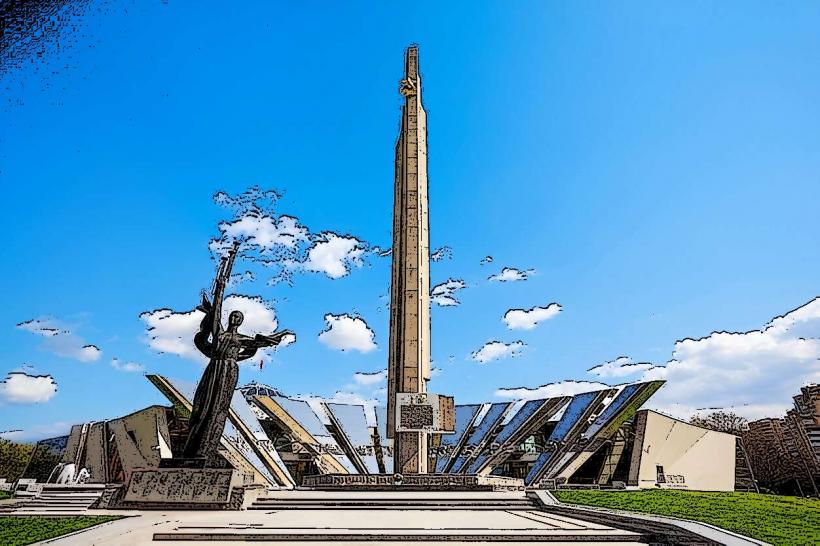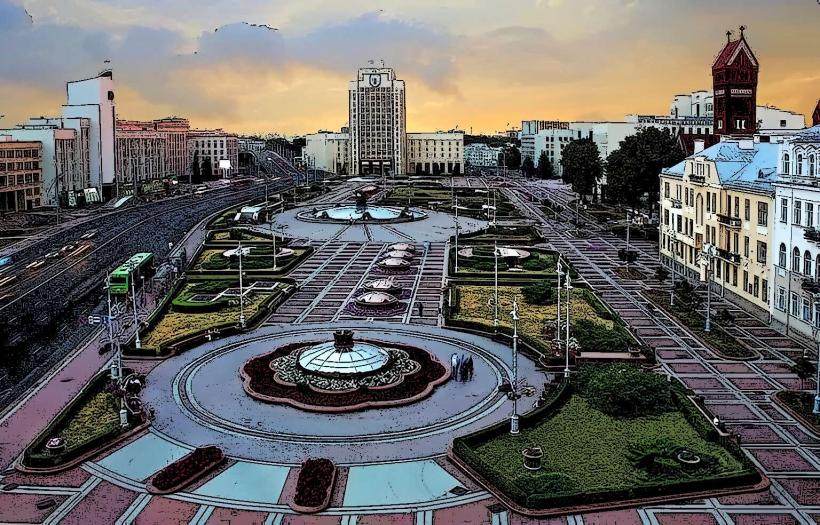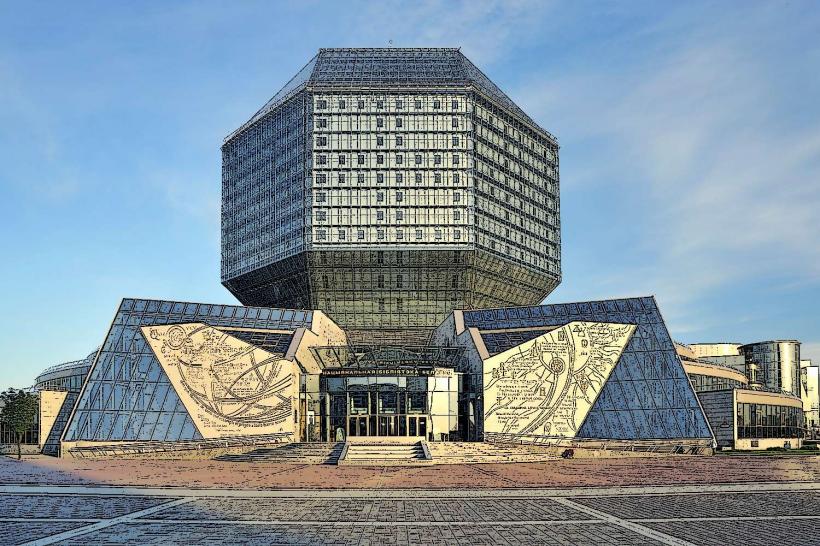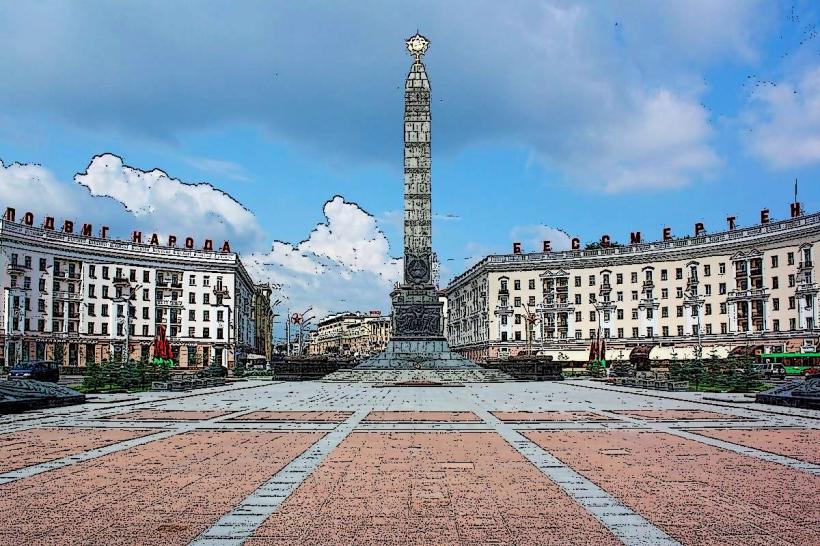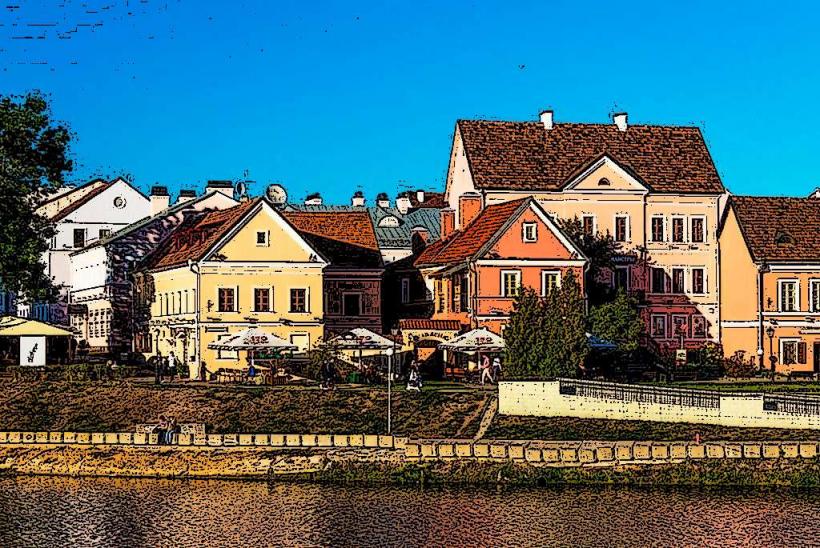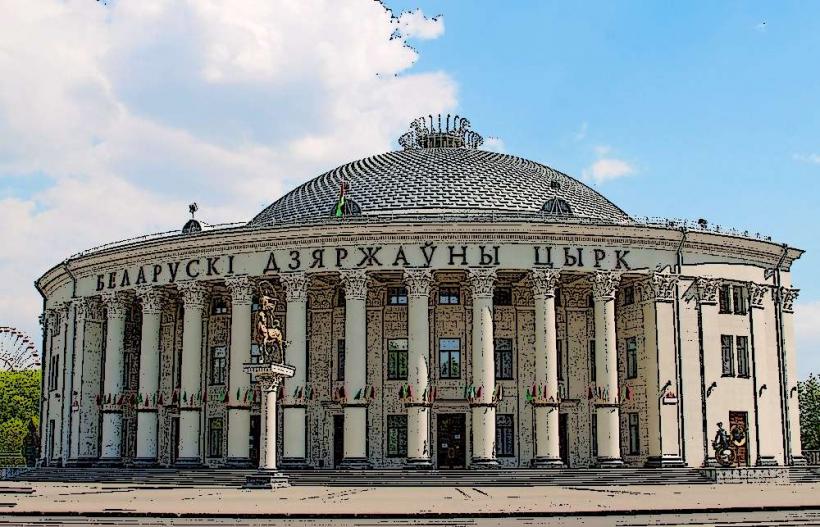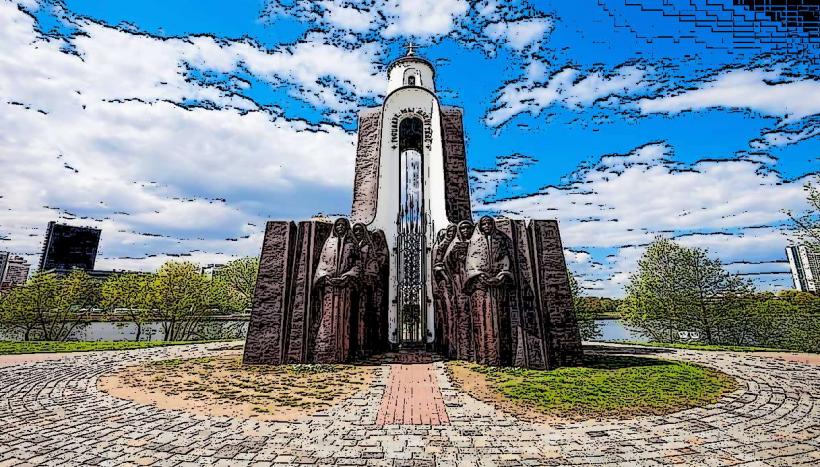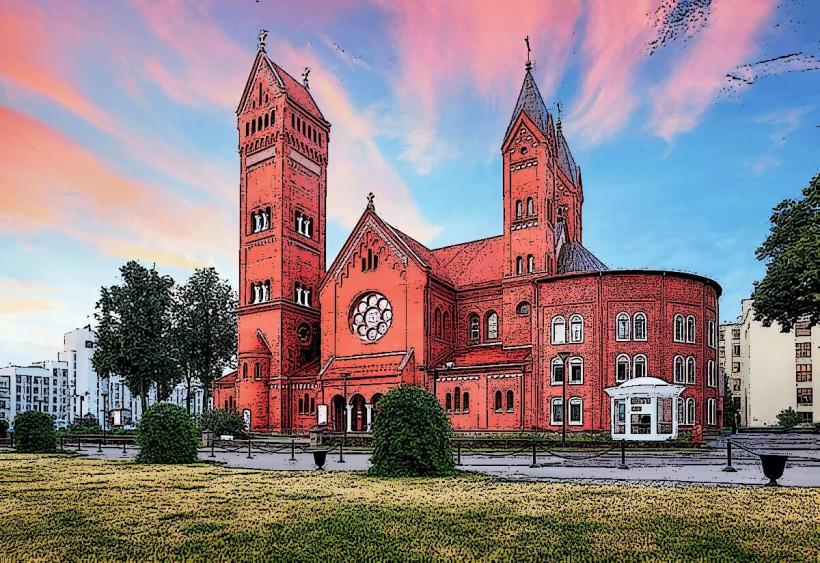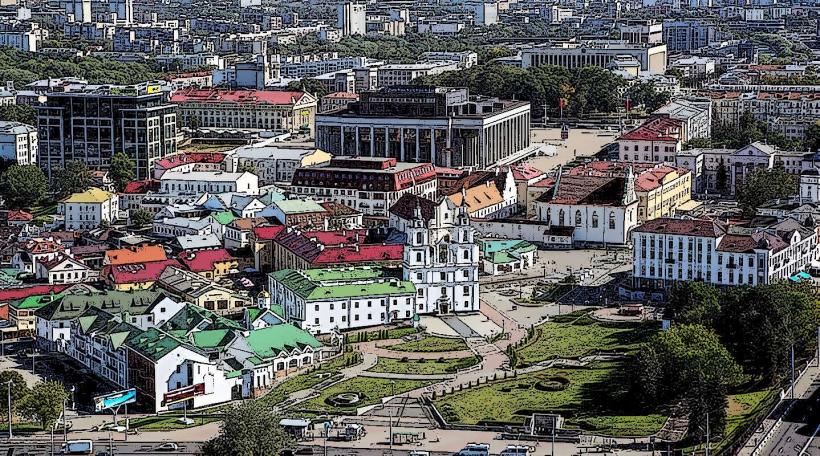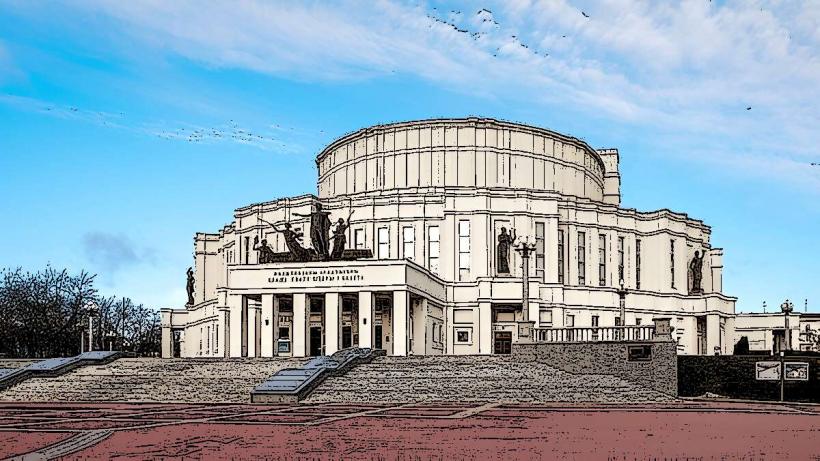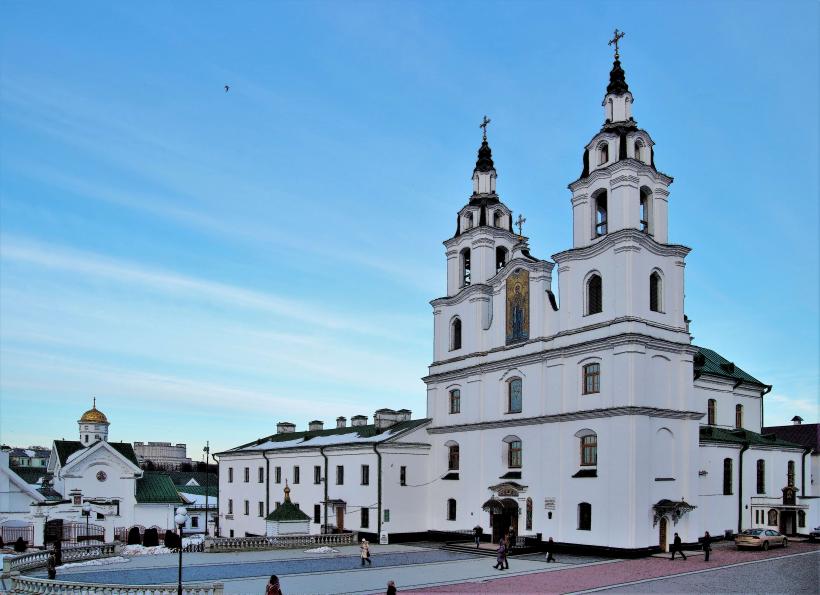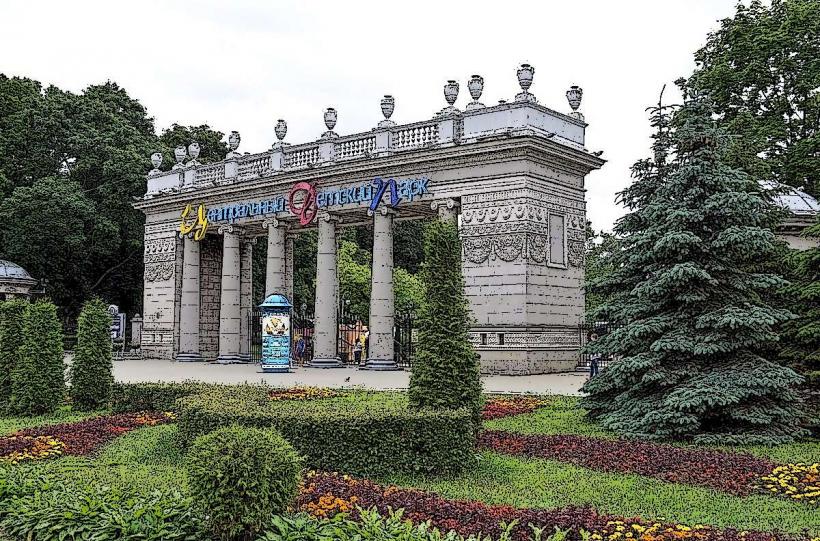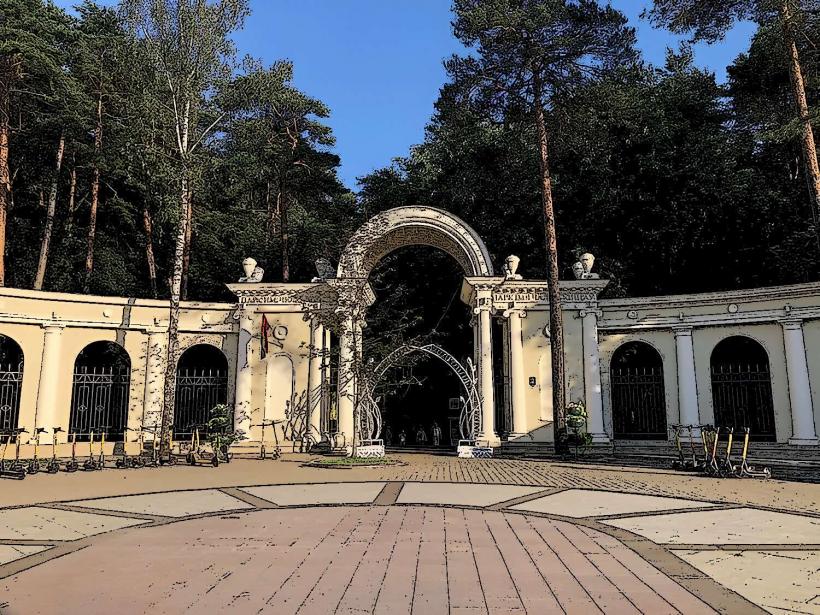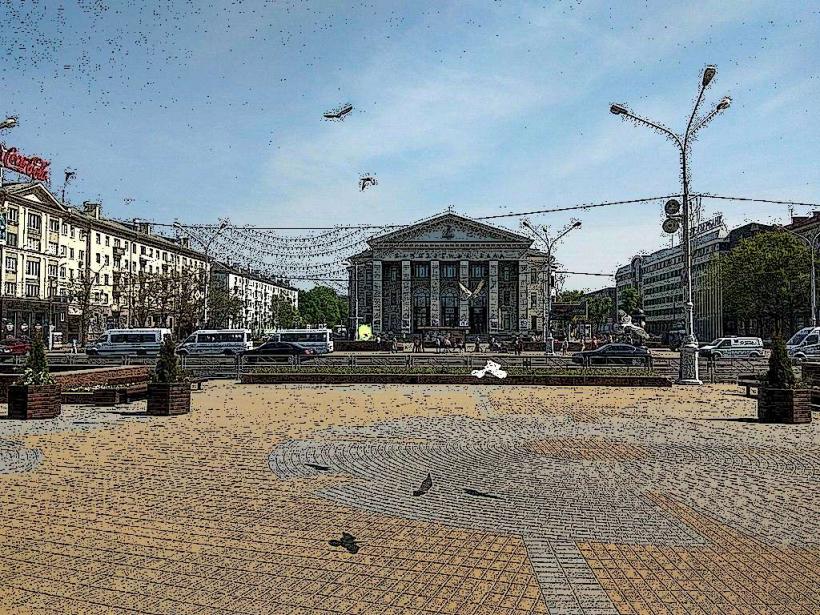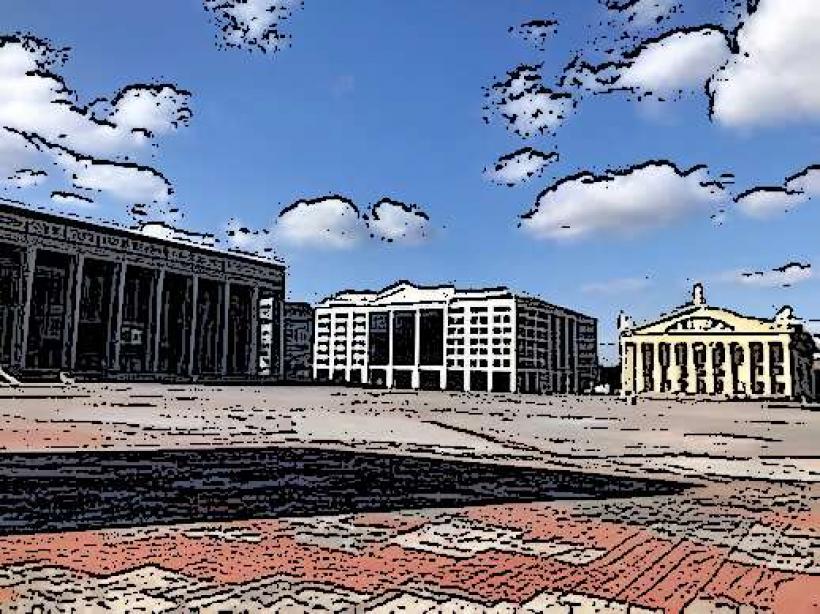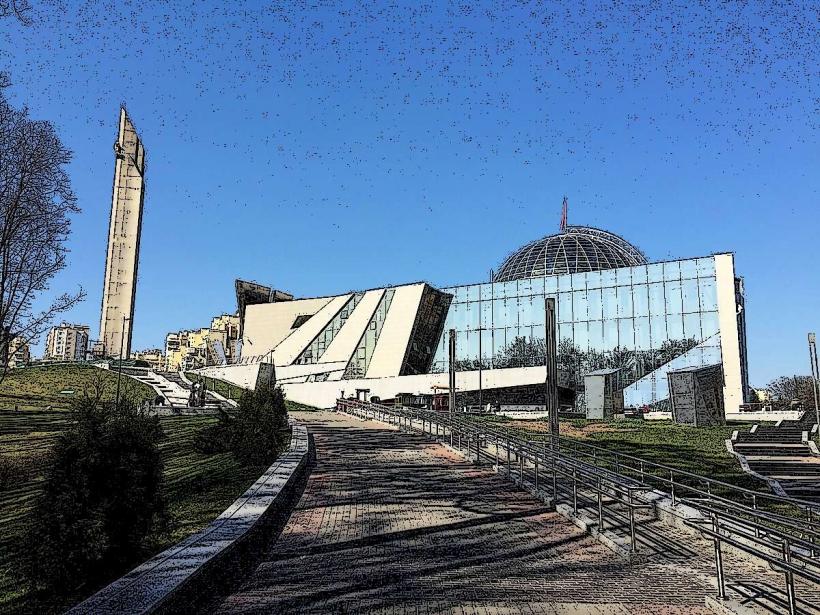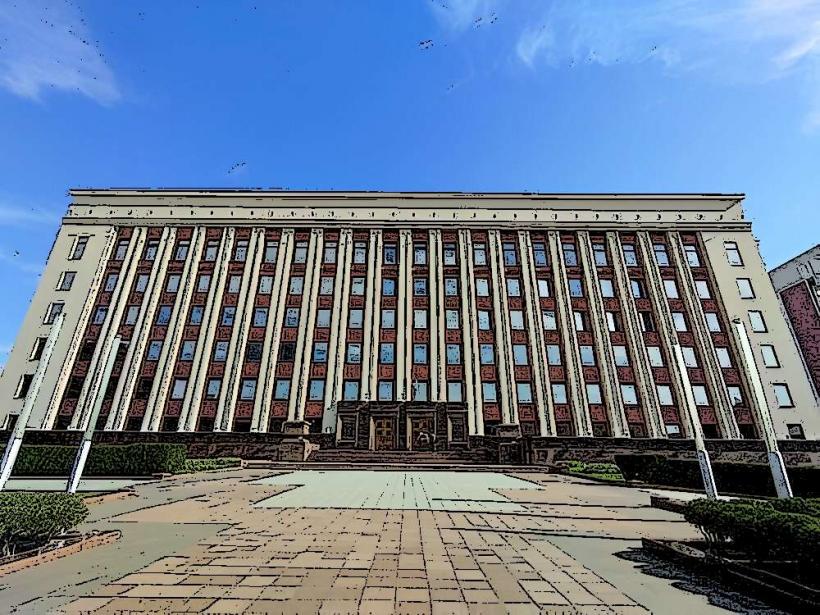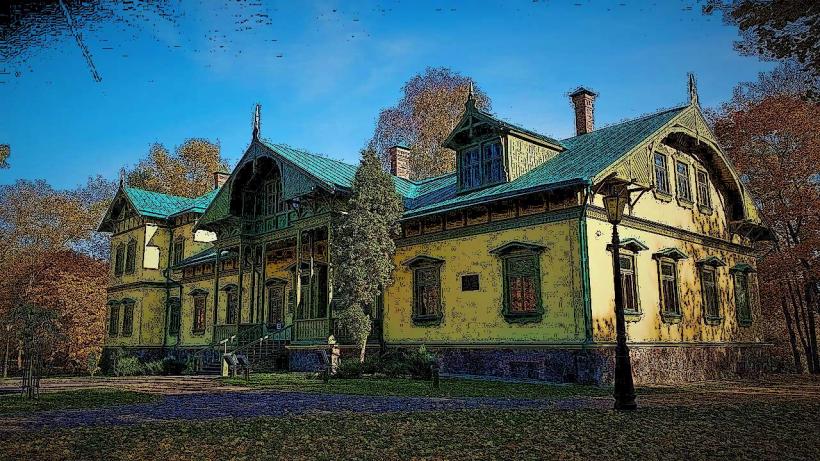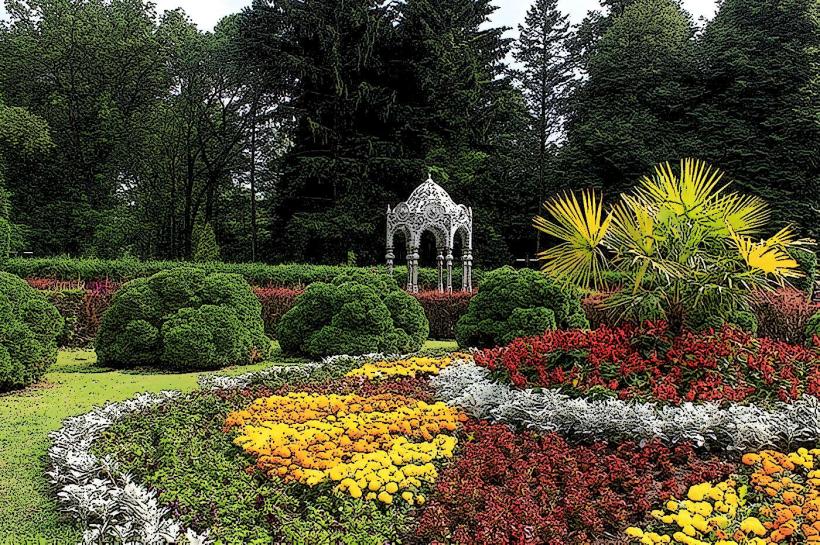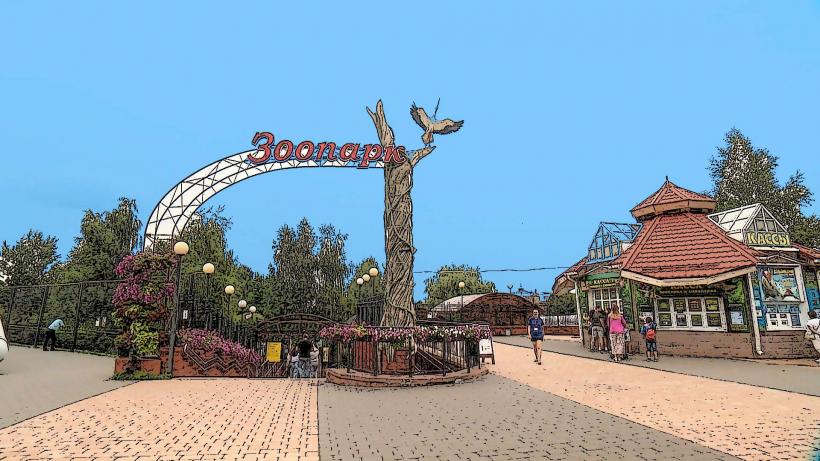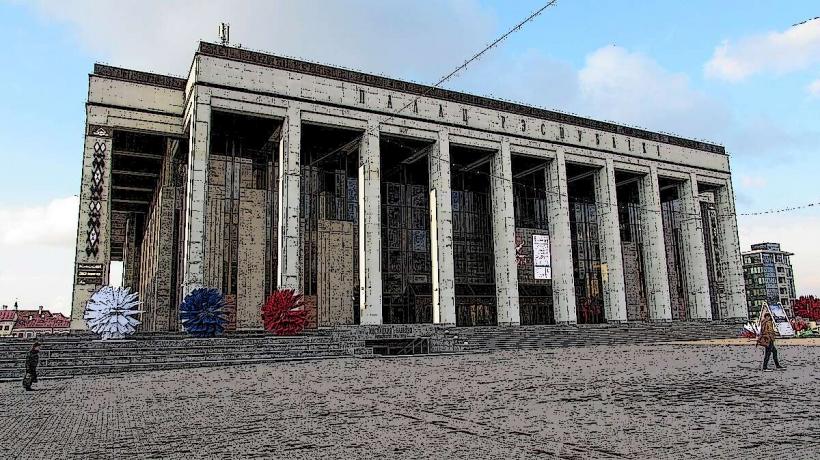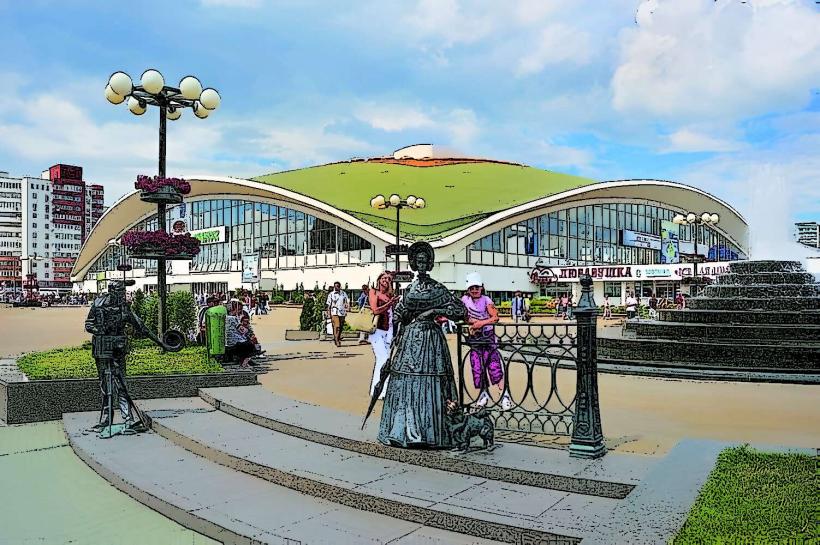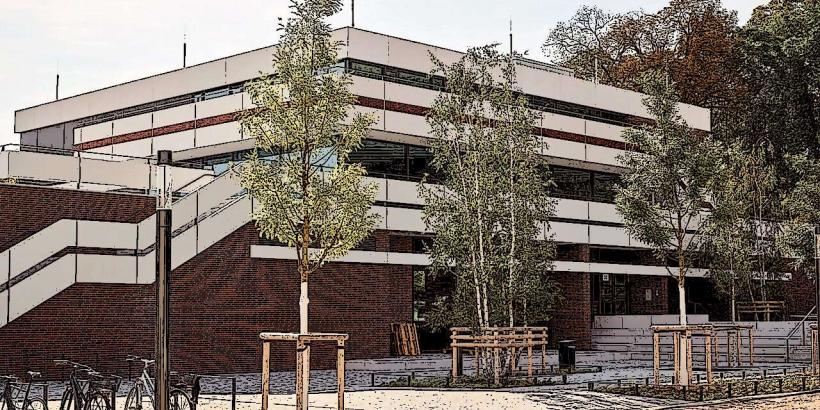Information
Landmark: Minsk City GatesCity: Minsk
Country: Belarus
Continent: Europe
Minsk City Gates, Minsk, Belarus, Europe
Visual Characteristics
The Minsk City Gates are composed of two symmetrical eleven-story towers constructed from reinforced concrete and brick, finished with light-colored plaster. Each tower is approximately 75 meters tall and capped with a red roof. One tower features a large clock face, while the other displays the coat of arms of the Belarusian Soviet Socialist Republic. The architectural style is characteristic of Stalinist Empire.
Location & Access Logistics
The Minsk City Gates are located at Privokzalnaya Square, directly opposite the main entrance of Minsk Passazhirsky railway station. This square is formed by the intersection of Kirova Street and Lenina Street. The site is approximately 1.5 kilometers south of Independence Square, the city center. Public transport access is direct via the Minsk Metro, with Ploshcha Lenina station (Moskovskaya line) situated beneath the square. Numerous bus and trolleybus routes also serve Privokzalnaya Square. Limited paid parking is available in nearby lots and garages.
Historical & Ecological Origin
The Minsk City Gates were constructed between 1947 and 1953 as part of the post-World War II reconstruction of Minsk. Designed by architect Boris Rubanenko, their original purpose was to create a grand, symbolic entrance to the city for visitors arriving by train. The towers primarily housed residential apartments.
Key Highlights & Activities
Visitors can observe the distinct Stalinist Empire architectural style and the intricate details of the facades. Photography of the large clock face on one tower and the Belarusian coat of arms on the other is a common activity. The structures serve as a prominent landmark for orientation within the city.
Infrastructure & Amenities
Public restrooms are accessible inside the adjacent Minsk Passazhirsky railway station. Shade is limited directly at the base of the towers, though some is provided by trees in Privokzalnaya Square. Strong 4G and 5G cellular signals are consistently available. Numerous food vendors, cafes, and restaurants are located within the railway station complex and on the surrounding streets.
Best Time to Visit
The Minsk City Gates can be visited at any time of day. For photography, morning or late afternoon light provides softer illumination, while evening offers views of the illuminated towers. The months of May through September generally offer the most favorable weather conditions for outdoor viewing.
Facts & Legends
The large clock adorning one of the Minsk City Gates towers was reportedly brought to Minsk from Germany as a trophy following World War II. It is recognized as one of the largest mechanical clocks in Belarus.
Nearby Landmarks
- Minsk Passazhirsky railway station: 0.1km East
- Church of Saints Simon and Helena (Red Church): 1.2km North-Northwest
- Independence Square: 1.5km North
- Gorky Park: 2.0km Northeast
- National Academic Bolshoi Opera and Ballet Theatre: 2.5km North-Northeast

